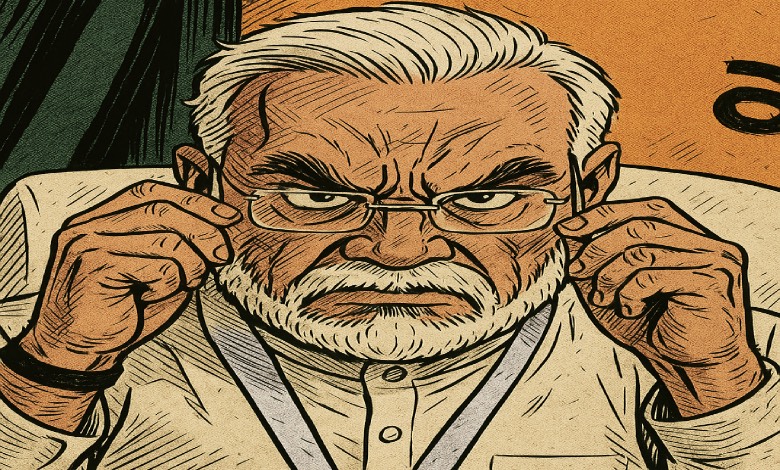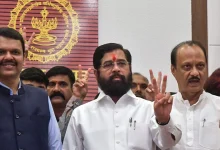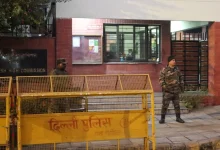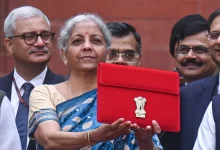
(Our Correspondent Devansh Desai)
Amid escalating tensions with Pakistan following the Pahalgam attack, India’s Ministry of Home Affairs has issued directives for nationwide mock drills to be conducted on Wednesday, May 7.
Instructions sent to all states and union territories mandate defense exercises and rehearsals across 244 listed Civil Defense districts.
Defense analyst Rahul Bedi told media agency that this large-scale mock drill, the first since the 1971 India-Pakistan war, indicates how significantly relations between the two countries have deteriorated.
The mock drill calls for participation from district controllers, various district departments, NCC, National Service Scheme (NSS), Nehru Yuva Kendra Sangathan (NYKS), college and school students, Home Guards, and Civil Defense volunteers.
Providing information about the mock drill, Karnataka’s Director of Civil Defense and DGP Fire Emergency Services Prashant Kumar Thakur said, “Officials from all states, including Karnataka, met with the Home Ministry to discuss civil defense preparedness and emergency response to potential threats.”
According to news agency ANI, a mock drill was conducted at Lucknow Police Lines, practicing firefighting and rescue operations. Similarly, students at a school in Jammu received mock drill training.
PTI news agency reports that on Tuesday, mock drills were conducted at 20 locations in Punjab, including Mohali, Amritsar, Patiala, and Jalandhar.
BJP Appeals to MPs and Workers
The Bharatiya Janata Party (BJP) has appealed on its X account to all citizens, BJP workers, leaders, and students to volunteer for this mock drill.
The post states, “The mock drill primarily includes activating air raid warning sirens, training citizens and students in self-protection during attacks, implementing blackout measures during emergencies, rapidly concealing critical infrastructure, and perfecting and practicing rescue plans.”
The BJP Parliamentary Party Office has asked all BJP MPs to participate in this mock drill along with ordinary citizens.
Telangana’s Bharat Rashtra Samithi (BRS) Working President KT Rama Rao said everyone should participate to make the mock drill successful as it is in the national interest, and BRS definitely supports what is in the national interest.
Just two days ago, during an event in Delhi, India’s Defense Minister Rajnath Singh, hinting at military action, said, “I want to assure you that under Prime Minister Modi’s leadership, what you want will certainly happen.”
India has accused Pakistan of being behind the Pahalgam attack, while Pakistan has rejected these allegations and offered to cooperate in an independent investigation.
Largest Mock Drill Since 1971
Defense analyst Rahul Bedi says such drills typically occur during wartime.
Speaking to the media agency, he referenced the third major war between India and Pakistan in 1971, when blackouts were implemented even train windows were darkened and lights were extinguished at night.
He says, “It’s difficult to say what will happen next, and if any kind of war begins, to what level it might escalate.”
India and Pakistan have fought four wars so far in 1947, 1965, 1971, and the 1999 Kargil War.
However, conditions have changed since the first three conflicts. Both neighboring South Asian countries now possess nuclear weapons.
Rahul Bedi says, “India’s 2016 surgical strike and the 2019 Balakot operation were limited to areas around the Line of Control. But if war spreads further, it will prove difficult for everyone.”
What is the Purpose of the Mock Drill?
According to Rahul Bedi, the mock drill is largely a preparedness matter, although some analysts are also calling it an operation to put psychological pressure on Pakistan.
He said, “A handful of high-level officials might know about India’s strategy, but it’s possible that the mock drill is a psychological tactic to intimidate Pakistan.”
High-level meetings have been taking place in the Indian government since the Pahalgam attack. According to news agencies, a fresh meeting between PM Modi and India’s National Security Advisor Ajit Doval took place just one day before the mock drill.
Previously, PM Modi held a high-level meeting with the heads of all three military branches, Defense Minister Rajnath Singh, and the NSA.
Both countries have made decisions ranging from canceling bilateral agreements to closing their airspace to each other’s aircraft.
While Pakistan has spoken of giving a “befitting response to any misadventure,” India is talking about delivering severe punishment.
On April 30, Pakistan’s Information Minister Attaullah Tarar suddenly issued a statement in the early hours claiming that “India intends to take military action in the next 24 to 36 hours.”
Some analysts called this “psychological warfare” by Pakistan.
However, some analysts are discussing the politicization of military action.
Rahul Bedi mentioned that television and some analysts say that “this issue is being politicized. They cite examples of the 2016 surgical strike and the 2019 Balakot attack.”
Rahul Bedi says, “The 2019 Balakot strike was politically beneficial for the BJP. Some circles are saying that this attack could provide political benefits to the BJP in the Bihar elections. But this is very difficult to say because the Pahalgam attack is very serious.”
According to him, “Looking at the history of the previous four wars, India did not initiate first; each time Pakistan started the war.”
The current situation is complex, and the international community appears concerned. The United Nations has spoken with both sides and appealed for de-escalation.
Rahul Bedi says the situation between the two countries is very complex. He says, “Looking at the 1965 and 1971 wars, the fighting between the two countries in the Western sectors ended almost in a draw. Any war will not be one-sided.”
Rising Tensions
The militant attack in Pahalgam, Jammu and Kashmir on April 22 killed 26 people.
After the Pahalgam attack, there is pressure on the BJP government, and India has taken several tough decisions.
Previously, India suspended the Indus Water Treaty and warned not to let even a drop of water go to Pakistan.
In response, Pakistan said it would consider “any action to stop or divert water as an act of war.”
Current tensions are very high, and the international community appears concerned. The United Nations has spoken with both sides and appealed for de-escalation.




